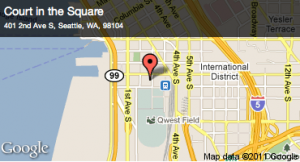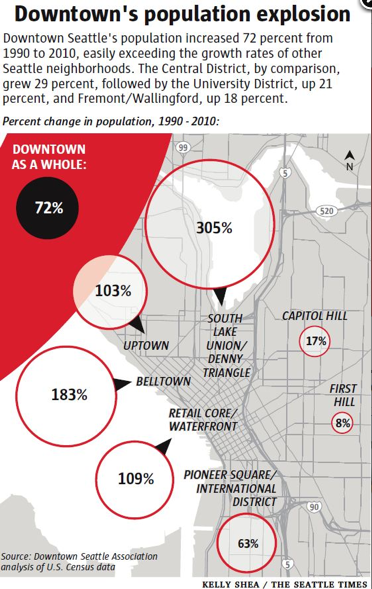The Incomparable Gospel
Teaching | by
Pastor Adam Sinnett

Audio
Summary
In Acts 8:9-25 the gospel faces potential distortions. What we see is that for the Gospel of Jesus Christ to spread in our city, and in our lives, we must continually clarify it, confirm it and commit ourselves to it. Christianity is not an abstract theory, but the living work of the living God in the living Savior, Jesus. At its center is an incomparable Gospel.
Introduction
We are about of a third of the way through our study of the book of Acts, which is the earliest authoritative historical account of the beginnings of the Christian church. We’re taking our time through this great book because as a new Bible-believing, Jesus-loving, Gospel-centered church it is crucial for us to understand the nature of true Christianity and our part in God’s continuing story, today. Last week we saw the church scattered, due to the stoning of Stephen (7:54-60), into Judea and Samaria, in fulfillment of Jesus’ promise (1:8). We then looked at, in Acts 8:1-5, five marks of effective gospel ministry: movement of missionaries, city-focused, gospel-declaring, gospel-displaying, reconciling.
Today, the story zooms into the city of Samaria, where Luke the Physician (author of Acts) records the encounter of Simon the Magician and Philip and the Apostles. Up to this point, the gospel of Jesus Christ has exploded like a bomb in Jerusalem and is now making its way to the world, via Samaria. Opposition began immediately, ranging from external persecution to internal hypocrisy. In this section, the gospel is potentially threatened with distortions. This is significant because when the gospel message is distorted it loses its saving and transforming power – and becomes like any other message. This is incredibly relevant for us today, as we living a city with many varying messages of hope, life and joy. For the Gospel to spread here, and for the sake of our own souls, we must continually clarify it, confirm it and commit ourselves to it.
By way of set-up, today we’re going to be talking about other religions and worldviews in relation to Christianity. That can inevitably cause tension b/c Christianity makes a claim to exclusivity. That is a cardinal sin in Seattle – if it believed in such things. One of the things I often hear is, “Who am I to judge someone else’s beliefs and tell them they’re wrong?” In other words, all paths must lead to the same place. That particular stance is called religious pluralism: all claims are equally valid. The implication here is that to be exclusive is to be arrogant and condescending. But, to be pluralistic is to be humble and loving. That is not true and we have to establish that from the beginning.
There are many people who have carefully considered the religions of the world, carefully searched for truth and humbly came to conclusion that Jesus is exactly who he said he is. That is not arrogant. Rather, that is being genuine. Insisting on what is true doesn’t make you arrogant, though there is an arrogant way to do that. Ironically, religious pluralism can also be arrogant by insisting that all roads lead to God – and there is no other way. That is an exclusive itself. The point here is simple. We’re all in the same boat. Let’s think through this together, humbly, and in pursuit of truth.
8:9-13 Clarifying the Gospel.
Here we meet Simon the Magician. His magic is not what is known as magic today, the art of illusion. Rather, he was utilizing occult practices to manipulate the spirit world with incantations, formulas and rituals. We’re told that everyone paid attention, from least to greatest. Not all spiritual power is positive. Simon can do amazing things – and amaze others – but the power is not from God. There are good and evil spirits. Meanwhile, Philip arrives and preaches the good news regarding the kingdom of God (God’s active rule and activity in forgiving, healing, reconciling, etc) and the name of Jesus. Those previously amazed by Philip’s magic are now more amazed by the good news of the gospel – including Philip. The one who amazed others is now amazed himself.
What can we learn from this?
You might object, “Well, no one gets that caught up in things like that today. Magic?” Yes we do. All the time. Look at the passage. The Samaritans went form believing magic to embracing the gospel. The principle here is that we are always believing something. We are always amazed by something. There is no neutral ground. Another way of saying this, is that we all believe a gospel, an ultimate good news. It is gospel news that gives us ultimate worth, value, meaning, purpose. If your ultimate happiness depends on something you can lose, you are trusting a magic gospel. It appears legit, but it is ultimately empty.
There is competition for our amazement. We are created to be amazed by God, but instead we are amazed by created things. Ro1:25 “[we] have exchanged the truth about God 4 a lie + worshiped + served the creature rather than the Creator” That is what sin does. It distorts. There’s truth there, but distorted. Result? “MAGIC” gospels. What is your magic gospel? What competes for amazement?
This same distortion happens within religion and other belief systems too. Some have estimated there are 20 world religions and 100s subsets within those. It can be overwhelming. One of the results of that is the prevailing view has become that they are all the same. They all deal with a higher power + spiritual cxn + various practices + afterlife.
But, there is another option. Maybe they’re not so similar because they’re all the same. Maybe one is true and the others are all distortions. Christianity claims to be THE truth; Not that others don’t have any truth, but its distorted truth.
You might say “That can’t be.” Let me show you how similar other religions are in the end…
- Islam. Muhammed. Revelations. 610-632AD. Re-wrote Bible. Jesus ≠ God. Saved = obedience/good.
- Mormonism. Joseph Smith. 1820’s. NY. XNty distorted. Bible + others. Jesus ≠ God. Saved = works Jehovah’s Witness. Charles Russell. Pittsburgh. 1870’s. Jesus ≠ God. Created own Bible. Saved = works
- Baha’i. 1800’s. Iranian business man. Bible only one of many sacred texts. Jesus≠God. Saved = works.
- Christian Science. 1860’s. Mary Baker Eddy. Jesus ≠ God. Bible filled w/ errors. Saved by works.
- Buddhism. Self salvation by following Middle Path, Four Noble Truth, Eightfold Path. Goal = Nirvana.
- Unitarian Universalism. Bible filled error. Jesus ≠ God. Save self through moral character = works.
- Scientology. L.Ron Hubbard. 1950’s. Bible = legend. Jesus = legend. Self-help.
- New Age. Man = divine. Bible one of many. Jesus ≠ God. Salvation = works and reincarnation. Grown in popularity, in particular, in the last 50 years.
- Atheism/Agnostics. This life all there is. Jesus≠God. Bible=book. YET, still moral, “good person”.
You can see why people say “They’re all the same.” They do sound similar, except Christianity which is the opposite. Initially it seems like there are a lot of options, but in the end there aren’t that many. CS Lewis noted during his journey from atheism to Christianity, that in the end Hindusim (polytheistic) and Christianity were the only viable options. Why? Because Hinduism absorbs all religious systems, and Christianityexcludes all others, maintaining the supremacy of claims of Jesus Christ.
One of the things that stood out to me during my preparation was how similar religious pluralism is to Hinduism. The Bhagavad Gītā (4:11) says, “As people approach me, so I receive them. All paths lead to me” The underlying assumption of Hinduism is that everyone worships the same God, whether they know it or not. That’s an underlying assumption in Seattle too. Seattle is very Hindu in its thinking – without knowing it.
But, the gospel stands apart from all others. It is incomparable.
Jesus is God in the flesh who came to seek and save the lost, because we cannot save ourselves (which every other worldview and religion maintains). We cannot save ourselves. But, God so loved the world that He gave His one and only Son that whoever believes shall not perish. Therefore if we repent of our sin and trust Him, we receive forgiveness, grace, adoption, Spirit, eternal life and so much more (i.e. unsearchable riches of Christ). He is who is says he is. Other religions and worldview may have some truth, but He is the Way, Truth and Life. (John 14:6) We all believe a “gospel” – but is it this one? Is it the gospel of Jesus Christ? Are you amazed by this gospel?
8:14-17 Confirming the Gospel.
This is passage causes more confusion and debate than nearly any other passage in the Scriptures, in particular vs 16, “[the Spirit] had not yet fallen on any of them, but they had only been baptized in the name of the Lord Jesus.” Does the Spirit come at conversion or at some point subsequent to conversion? Entire denominations have formed around various answers to that question. I will try to answer this as clearly and succinctly as possible. There are many passages in the New Testament that say you get all of the Holy Spirit at the point of conversion. (1Cor12, Acts 2:38-39, Rom 8:9, Rom 8:14-16, 1Cor6:19, Gal3:2,14;4:6) But, there are two places in the New Testament where they didn’t get the Holy Spirit at conversion, including Acts 2 (prior to Pentecost) and, here, Acts 8.
So, why was the Holy Spirit not given when people believed in Acts 8? Some will say that these two exceptions describe the normal experience. In other words, the normal experience is to trust Jesus and then receive the Spirit at some other point, like the Apostles (on Pentecost) and the Samaritans (here). But, the most natural explanation is that this is a unique instance as it is the first occasion the gospel is proclaimed outside of Jerusalem and inside Samaria. An unprecedented situation demanded exceptional methods. Since the church was breaking new ground, apostolic confirmation was required.
Relatedly, though clearly different, it is crucial for us to confirm the true (vs false) gospel today.
Relatedly, though different in obvious ways, it is crucial for us to confirm the gospel today within Christianity. False gospels always leave something out. I’ll give you some examples:
- “Be Good or Else Gospel” = Moralistic Gospel based on fear and rules in order to discourage sin and encourage holy living. This often results in self-righteousness for rule-keepers and despair for those unable to live up.
- “Give-me-something-useful Gospel” = Pragmatic Gospel. This focuses on techniques, principles, steps rather than pointing people to the only thing that has the real power to change hearts and lives – Jesus.
- “Let’s-git-er-done-Gospel” = Activist Gospel. This gospel’s center is a political party, platform, agenda or cause, not Christ.
- “I hope I don’t offend you gospel” = Careful gospel. This is the “I don’t want to upset you so I’ll share a bunch of stories” gospel. There is no urgency. Yes, be careful, wise, gracious and winsome, but not too careful. The gospel without urgency is not the gospel. God commands all people everywhere to be saved. Today is the day of salvation.
Admittedly, all of these start with noble aspirations to help people. But, if God is not the center of the gospel, you have a distorted gospel.
Three practical ways you can confirm the gospel:
#1 Listen. Is it all there?
#2 Scriptures. Does it line up with what you find there?
#3 History. The gospel is not changing. It should be the same until Jesus returns.
If you spend enough time with Downtown Cornerstone, you’re likely to hear about our desire to be a gospel-centered church. What does that mean exactly? Practically, this means that we’re committed to:
- Reading and teaching the entire Bible in light of the Gospel of Jesus Christ (i.e. who God is, what He has done in human history through His life, death and resurrection, who we are, how we can know him, how we are now to live, etc.)
- Preaching the Gospel to believers and unbelievers. The Gospel is how you being and how you continue the Christian life. You become a Christian by repenting of sin (turning from it in heart, mind and deed) and trusting Jesus. And, you continue to grow as a Christian by continuing to repent and trust Jesus, day-by-day.
- Cultivating a culture marked by increasing Gospel astonishment.
- Cultivating an atmosphere of grace and serving as a safe place for seekers, skeptics, and those outside the faith. This itself is rooted in the idea that even while we were sinners, Christ died for us. (Rom 5:8)
Developing disciples who don’t just know the doctrine of the gospel but love the person of Jesus Christ.
8:18-25 Committing to the Gospel.
Here, things go poorly for Simon. He sees people receiving the gift of the Holy Spirit at the hands of the Apostles and requests to buy the ability to do the same. Peter responds quickly and clearly to this request. There is some debate regarding whether or not Simon was a true believer or not. Everything here in this passage suggests that Simon has not experienced the redeeming and transforming work of Jesus. How could this be? Jesus himself tells us that is possible to have a sort of cognitive faith but not saving faith.
“Not everyone who says to me, “Lord, Lord, wIll enter the kingdom of heaven…on that day many will say to me, ‘Lord, Lord, did we not prophesy in your name, and cast out demons in your name, and do many mighty works in your name?’ And then I will declare to them, ‘I never knew you…’” Mt7:21-23
No one can only rest their faith on a past public profession or baptism or church attendance. Simon had all those things. We need those, but there’s something more. We should test ourselves. In the end what matter is not appearance, but your personal knowledge of the Son of God, Jesus Christ. Christianity is not merely about a cognitive faith, but a committed faith. Do you know him?
Some questions to ask yourself:
- What part does Christianity play in my life? Does it control me? Is it the biggest thing in life or add on?
- Am I giving Jesus the minimum or maximum? Christians do the maximum, at least desire to do so, even though they often fail. Cognitive believers just do the minimum.
- Have I changed? Do I love Jesus and others more? Increasingly hate sin and see need for grace?
- Can I give the reasons for my hope in Jesus?
- Am I persevering? Heb 3:14 “We have come to share in X if indeed we hold our original confidence firm to the end.” What really matters is not only when you start following Jesus, but do you ever stop?
In the end. what matters is not appearances, but your personal knowledge of the Son of God, Jesus Christ. Christianity is not merely a cognitive faith, but a committed faith/trust. Are you committed to Jesus Christ, by grace through faith?
Christianity is not an abstract theory, but about the living work of the living God in the living Savior, Jesus. What is the primary gospel you believe? Is it a magic gospel or the gospel of Jesus Christ? Your work or His? God is concerned for your souls. That is why he came. You cannot work to him, so he came for you, to die for your sin, in your place.Jesus took God’s wrath so you can experience God’s love. There is no other news this good. All others say try harder, do more, be better. Jesus, “it is finished”. This is what makes it the INCOMPARABLE gospel!
For gospel to spread in Seattle – and in our lives – we must clarify it, confirm it + commit ourselves to it. If we do that, He will build His church, He will draw all people to Him and He will use us for His glory in our city. We will be a movement of missionaries, armed w/ good news of gospel of Jesus Christ. We will have the great privilege of watching him build a great city, through the gospel, for His glory – and our good.
“A great man knows he is not God and the greater he is, the better he knows it. The gospels declare that this mysterious maker of the world has visited his world in person. The most that any religious prophet has said was that he was the true servant of such a being. But if the creator was present in the daily life of the Roman empire, that is something unlike anything else in nature. It is the one great startling statement that man has made since he spoke his first articulate word. It makes dust and nonsense of comparative religion.” GK Chesterton






 Cities are places of transition. Seattle is no different. Many people move to Seattle for school, work or new opportunities. Moving to a new city is difficult. But, finding a church that loves Jesus, believes the Bible and preaches the gospel is even more so. Since launching in April we’ve met many new-to-the-city Jesus-following transplants in search of a church to call home. That search is not as easy as it might sound, particularly in Seattle. What follows are questions I encourage people to consider when in search of a new church family. Disclaimer: This is genuinely not written for the benefit of DCC but for all in our city looking for a Bible believing, Jesus-loving, Gospel centered church to call home. Jesus wants you covered by a church like that.
Cities are places of transition. Seattle is no different. Many people move to Seattle for school, work or new opportunities. Moving to a new city is difficult. But, finding a church that loves Jesus, believes the Bible and preaches the gospel is even more so. Since launching in April we’ve met many new-to-the-city Jesus-following transplants in search of a church to call home. That search is not as easy as it might sound, particularly in Seattle. What follows are questions I encourage people to consider when in search of a new church family. Disclaimer: This is genuinely not written for the benefit of DCC but for all in our city looking for a Bible believing, Jesus-loving, Gospel centered church to call home. Jesus wants you covered by a church like that. 
 “He has made everything beautiful in its time…” Ecc 3:11
“He has made everything beautiful in its time…” Ecc 3:11 This past winter* I came across a distinction that was incredibly helpful to me: Goals vs Desires. This distinction helped to clarify my expectations and the emotions inevitably tied to those expectations. Understanding this will help breathe greater freedom and joy into your life and ministry; it has for me. The distinction is simple, but subtle. Goals are objectives under your control; desires are not.
This past winter* I came across a distinction that was incredibly helpful to me: Goals vs Desires. This distinction helped to clarify my expectations and the emotions inevitably tied to those expectations. Understanding this will help breathe greater freedom and joy into your life and ministry; it has for me. The distinction is simple, but subtle. Goals are objectives under your control; desires are not. I’ve intended to put together a recommended reading list for over a year. Finally, here it is. It’s lengthy but covers a multitude of topics and should be a helpful starting point for all interested in further study and stoking the embers of your heart, mind and soul to burn brightly for Jesus Christ.
I’ve intended to put together a recommended reading list for over a year. Finally, here it is. It’s lengthy but covers a multitude of topics and should be a helpful starting point for all interested in further study and stoking the embers of your heart, mind and soul to burn brightly for Jesus Christ.